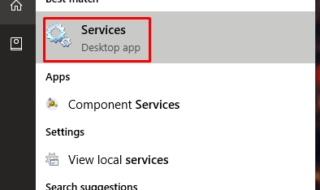For quite some time now, blockchain technology has attracted more and more attention, but there are still concerns among users. States have not yet developed any legal framework that could regulate the activities of cryptocurrencies. What prevents blockchain adoption? And what is the driving force that made the whole world pay attention to blockchain technologies in general and cryptocurrencies in particular?
Blockchain advantages
Decentralized systems are known for many useful qualities, which include:
- Simple and convenient real–time auditing.
- All changes are inscribed in the block chain, they cannot be faked and you can always set the author and the exact time of the change.
- The technology includes the ability to back up, essentially a blockchain and there are many copies of the same.
- Decentralized environment with the ability to achieve objective consensus.
- Impossibility of external control and establishment of local regulators.
- The endless possibilities of smart contracts allow you to integrate blockchain into any business.
All these qualities make blockchain an excellent system for creating financial structures, but now many developers are trying to integrate blockchain technology into almost any area of life. And they all face a number of challenges that complicate the implementation of blockchain into everyday use. But this does not slow down the work of blockchain development services, because many people, despite the shortcomings and difficulties in blockchain development, see a considerable prospect in it.
Reasons hindering the implementation of blockchain

Lack of scalability and poor performance
Take, for example, the Ethereum blockchain, on the basis of which many projects are created. Its main problem is its very limited throughput: now it is 100 transactions per second. The requirements of some projects are sometimes so great that they can seriously interfere with the operation of the network – this happened, for example, at the end of 2017, when the CryptoKitties game gained popularity, due to which the price of transactions on the Ethereum network increased tenfold.
For some projects, such conditions are simply unacceptable, but recently new generation blockchains have begun to appear: for example, EOS has developed a platform that can increase productivity by making blockchain more accessible for use in areas not related to finance.
Too much data
The technology is based on the authentication of all data, for which all network participants need to keep a complete copy of the entire block chain. Naturally, it takes up a lot of space, for example, the weight of the Bitcoin blockchain is 208 GB, the Ethereum is 667 GB. Each miner must keep a copy of the entire chain, so it’s hard to imagine the total space it takes around the world. And every day the amount of data will only increase.
Complex controls
Decentralized systems are not subject to external control. It is impossible to independently influence the development of the entire network. To make changes, the consent of more than half of all miners is required. This function is very convenient for those cases where centralized control should not be exercised, for example, in the case of instant messengers or cryptocurrencies. From this point of view, blockchain fits perfectly into the concept of an open society and a free Internet. However, for a particular company to work, it is necessary to comply with clear conditions set by the management, and often the realities of the business require an instant decision, which is very difficult in a blockchain environment.
No responsibility
Hundreds of years of classical law have instilled in us a culture of looking for someone responsible or guilty. Blockchain implies exclusively collective responsibility and collegial decision–making, which runs counter to any logic of lawyers and is one of the most important difficulties in implementing blockchain technologies. You can’t find someone to blame – you can’t regulate.
Difficulties in updates
In the event that some users refuse to accept the new rules of work, a fork may appear. This happened, for example, with bitcoin. When some users came up with a proposal to increase the block size, some users accepted it, while the other part refused. Those who agreed to increase the block created a fork of BitcoinCash.
A similar situation happened with the Ethereum blockchain, when attackers hacked the exchange and stole $ 70 million. In order to return the money to the owner, it was proposed to roll back the blockchain a few days ago: again, some users abandoned this idea, which gave rise to Ethereum Classic.
In any case, it is already safe to say that over time, the blockchain will correct its main shortcomings and become the same familiar technology as, for example, electricity or the Internet – after all, once they did not want to be taken seriously either.
If you are interested in this topic, you can find more information on NFT development.



